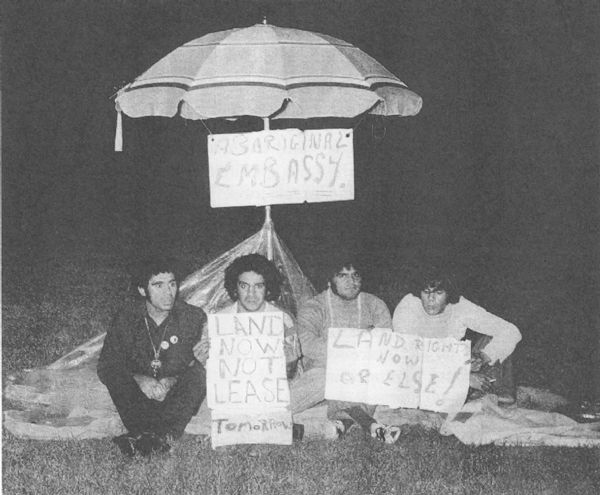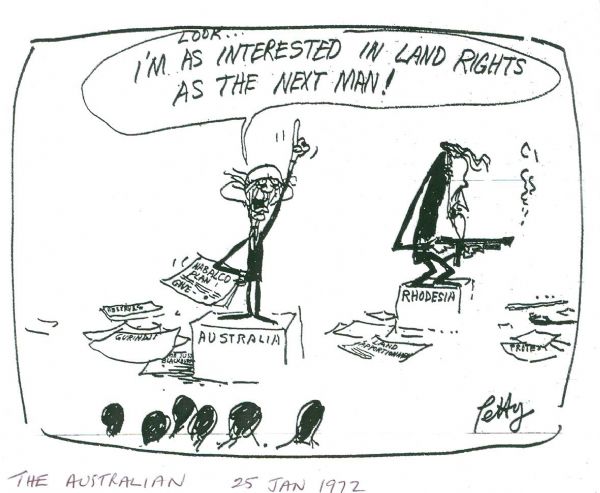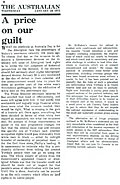Australia Day under a beach umbrella
The text of Prime Minister William McMahon's speech was released on 25 January, the day before Australia Day. Aboriginal activists in Redfern, a suburb of Sydney, heard the speech on the radio. The realisation that it rejected the idea of an Aboriginal title to land galvanised them to take action.
As The Australian editorialised, for Aboriginal Australians, 26 January was 'the anniversary of history's enormous calamity'. On this day in 1938 – the sesquicentenary of the arrival of the First Fleet in Botany Bay – William Cooper, Bill Ferguson and other Aboriginal spokespeople had held a 'Day of Mourning and Protest'. While Sydney Harbour was filled with yachts partying and celebrating, Aboriginal people had gathered to mourn their losses and protest their unjust treatment by the descendants of the colonisers. Australia Day remained in Aboriginal consciousness as a reminder of loss and suffering.
The young Indigenous activists who listened to McMahon's rejection of Aboriginal land title, against the advice of his Government's own Council for Aboriginal Affairs, were incensed.
With the support of the Communist Party of Australia, four young Aboriginal men – Billy Craigie, Tony Coorey, Michael Anderson and Bert Williams – travelled from Sydney to Canberra. By the end of Australia Day they were seated on the lawns facing Parliament House under a beach umbrella with a sign that read 'Aboriginal Embassy'. Michael Anderson told the press, 'The land was taken from us by force ... We shouldn't have to lease it ... Our spiritual beliefs are connected with the land'. [1]

Angered at the federal government's Australia Day statement rejecting Aboriginal land rights, these four men drove from Sydney to Canberra to set up their protest under a beach umbrella.
Source: Tribune/SEARCH Foundation, Mitchell Library, State Library of New South Wales
Over the following days and weeks they would be joined by other black activists: Gordon Briscoe, Paul Coe, Chicka Dixon, Gary Foley, Bruce McGuinness, John Newfong, Roberta Sykes, Denis Walker and many others from all states and territories of Australia. The press criticised McMahon's statement and gave the group a sympathetic hearing.
'A price on our guilt' Australia Day editorial, The Australian, 26 January 1972
The Australian, 26 January 1972
Download 'A price on our guilt' Australia Day editorial, The Australian, 26 January 1972 [PDF 424kb]

Source: The Australian, 25 January 1972
Related resources
People
Gordon Briscoe
Paul Coe
William Cooper
Chicka Dixon
Bill Ferguson
Gary Foley
Bruce McGuinness
John Newfong
Roberta Sykes
Denis Walker
Organisation
Footnotes
1 Canberra Times, 26 January 1972.
384370
- 384334
- 384370
- 384400
- 384409
- 384472
- 384481
